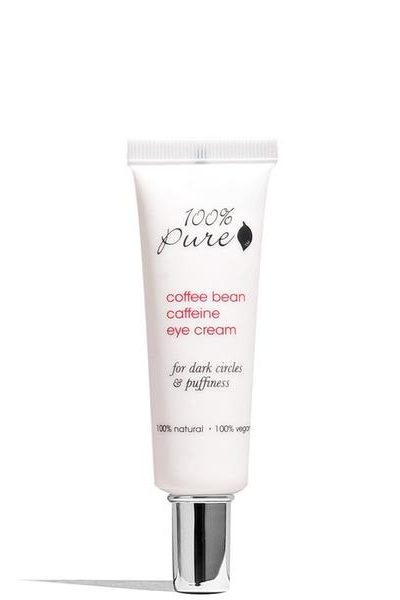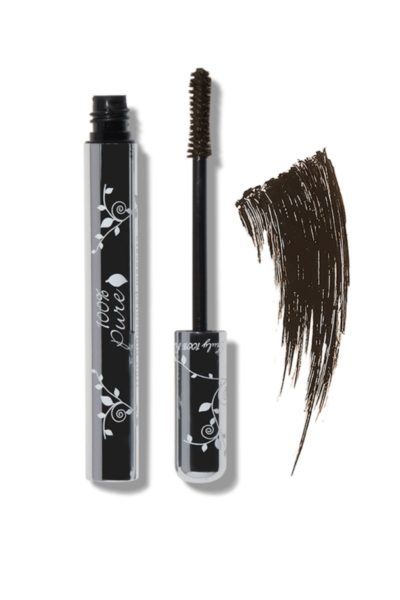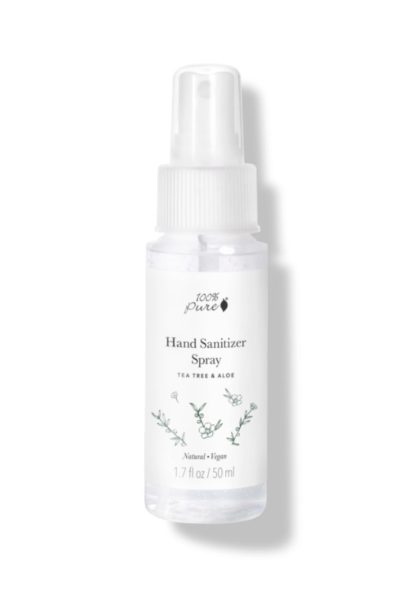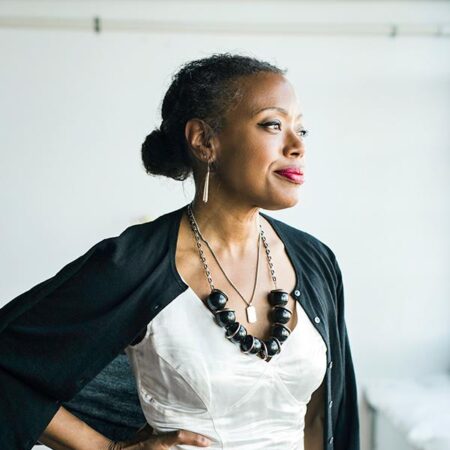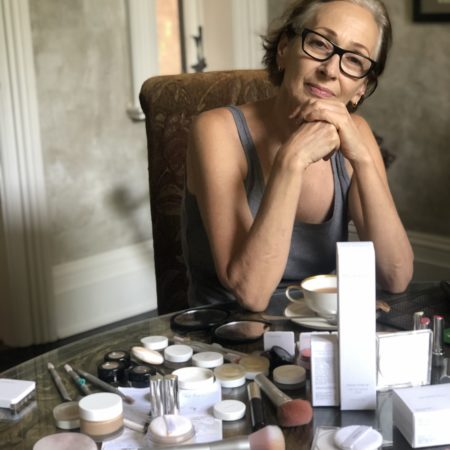In 2000, 18-year-old Susie Wang, then a freshman at the University of California, Berkeley, spent $60 on a new beauty innovation called Vitamin C serum. She was disappointed to watch the white liquid turn yellow one week later, and by week two, it was brown. The product had oxidized, meaning it had turned into a free radical, an unstable substance that can ultimately lead to various diseases and premature aging. Susie thought it was a fluke, so she went to look at more serums only to find the testers were also brown. Over the next few months she tried out other brands, but the formulas continued to oxidize within weeks.
Susie had always had a knack for science and often conceptualized ways to improve upon what already existed. With her naturally inquisitive mind and unsinkable work ethic—something she attributes to her Korean roots (she moved to Northern California with her parents when she was a child)—Susie did a little at-home experimenting and ultimately developed a way to stabilize vitamins using oil as a protective barrier. Still a freshman, she wrote up a patent application and filed it on her own. It wasn’t long before several major cosmetic companies came calling, offering her big money to work on innovation and technology, formulations, and brand concepts. It was a dream job, but the deeper she got into the cosmetics world, and the more she realized what chemical ingredients were used in common products, the more she wanted to change it.
In 2005, Susie founded 100% Pure with her then-boyfriend Ric Kostick and her brother, James—a company they’ve maintained total control over. Here, the beauty innovator explains how she upended cosmetic development to launch one of the original clean beauty brands, and how 15 years later, she’s still ahead of the game.
The Helm: What was the turning point that forced you to make the jump from a super-successful cosmetic consultant to the founder of 100% Pure?
Susie Wang: I had decided to put school on hold to work as a contractor for these companies for five years. At that time, 20 years ago, I don’t think anyone would have thought there were carcinogens in cosmetics. Who would have ever guessed? When I found that out, it really shocked me. I remember I was working on formulating an eye cream, and there were lots of chemicals sprawled out for us to use. One of the chemicals, polytetrafluoroethylene (PTFE), got knocked over so I stepped away for a minute and then came back to wipe it down. The product had warped the lab table, making it shrivel. I thought, Whoa, this is a primary ingredient we use in skincare. What is doing this? If it can damage a lab table, isn’t it obvious it could damage your skin? PTFE is still used a lot. It’s the same chemical as the Teflon in your nonstick pans. It can be used in waterproof mascara, so the water repels, as well as super-matte lipstick because it repels moisture. We were using it because a lot of high-end luxury creams act like liquid plastic by smoothing out your wrinkles, superficially. The PTFE gives it a smoothing effect.
Anytime we received chemicals in the lab, we would get a booklet about what the chemical is. No one would ever read it, they’d just sort of file it. But after that moment, I got more curious and started to look into the clinical trials on ingredients, and a certain percentage—a high percentage—would cause tumors, cancers, birth defects in rabbits or whatever animal the chemical was tested on. I asked my supervisors, “Did you ever take a look at the clinical?” They would say, “Oh, don’t worry. You don’t have the same immune system as a rat.” But that really bothered me. Another thing that shocked me is when they would claim no testing on animals. This actually means the final formula isn’t tested, but the ingredients might be.
From there, I did a lot of research. I found out a common ingredient in cosmetics is formaldehyde—which is how we preserve dead bodies; corpses. After my fifth year, I didn’t want to renew my contract. I don’t know if you’ve ever had a job where you felt guilty … like you’re contributing to harm in some way. My co-founder Ric was my boyfriend at the time, and I would complain to him all the time about how I hated what I was doing, but I was obligated to do it for the duration of my contract. I said, “Why can’t they just make 100 percent pure products that are totally safe and good for you?” That’s how we came up with the concept.
"A lot of high-end luxury creams act like liquid plastic by smoothing out your wrinkles, superficially."
The Helm: What was it like, formulating on your own for the first time?
Susie Wang: When I would give a concept or formula to the cosmetic companies I worked for, they would dilute it down by adding a lot of water and fillers. (Cheap thickeners, like PEG, is the most commonly used to thicken the whole thing up.) They would really limit the expensive active ingredients to save money. It was economical.
With 100% Pure, I wasn’t held back by cost restriction in developing on my own, because I had made a lot of money working for these large cosmetic companies, and because our products were pure and healthy, we did not need to test on animals. With chemical ingredients, they are regularly tested on animals, but if you are using herbs or seaweed or plants or fruits, they don’t need to be tested, because they are known to be safe. They are literally consumed.
The Helm: What were your original products for 100% Pure? Did you patent them?
Susie Wang: Koreans are the hardest working people in the world; I’m the same, I give 100 percent to whatever I do, to the max. I work a lot, I don’t really sleep, and I know that isn’t healthy. But back then, I didn’t understand work-life balance at all, and I was getting puffy eyes and dark circles as a result. We were the first ones to come up with a caffeine treatment for the eyes. The reason you have dark circles is because your blood settles; if you have caffeine and increase the circulation, it gets the blood flowing. Coffee is also a diuretic, so it will depuff. That is still one of our top products.
I also love long lashes, so it was important for me to make a great mascara. Most mascaras are made using coal tar, the same stuff you put on your rooftop. It’s gooey and binds to lashes to make them longer; it’s a known carcinogen and can also cause allergic reactions. I wanted to make a clean mascara that extends lashes. The original formula for us was beeswax that would extend out, and also oat and wheat protein to strengthen and seaweed to thicken—a conditioning mascara with zero toxins. We then micronized black tea for the color. Coloring with natural ingredients was always very possible, it just costs more. That’s one thing I learned about working with these large cosmetics companies: They were so concerned with costs, they put money behind the marketing instead of behind the formula.
In terms of patenting, I am a big believer in free trade. I think this is also the hippie side of me. I have patented things involving processes, like with the Vitamin C or how we utilize fruit pigments because those are inventions. But when I am just the first to use an ingredient, like caffeine, I’m not a big fan of trying to patent something like that. To me, that’s not so much an invention, but being the first to discover. I have a lot of peers in the industry and I am a huge supporter of building the natural cosmetic industry so it’s bigger. The more natural companies there are, the more reach we will have to consumers.
The Helm: How did you raise money to launch 100% Pure?
Susie Wang: At one of the cosmetic companies I worked for, I was managed by the CFO because they didn’t want anyone to know how much money I made. For that company alone, let’s say they have 2,000 stores and I create one product for them and they put it in all of their stores. I made 3 percent, so if a $100 product sold, I would get $3. If it reached a certain sales threshold, I would get 7 percent. And I developed a lot of products. So I had money to launch the company. Ric’s dad also put in money to start, but it was just us. To this very day, we’ve never had an outside investor. We probably spent a few hundred thousand dollars to create the formulas, do the testing, the packaging, and some inevitable extra expenses like building out the website, shipping the product and advertising; if I had to guess, we probably both invested $250,000. We had an open bank account that the company drew from whenever more money was needed.
"My ultimate goal wasn't ever to be rich."
The Helm: It’s great to have that kind of control of your own vision. Had you taken on outside investors, do you think that may have changed?
Susie Wang: From early on, we got approached by some private equity companies that have helped brands become billion-dollar companies. I sometimes regret not working with them, because I feel like we can’t reach the volume or capacity we could have with that outside money. But I have always worried about the quality of the products. It’s a double-edged sword. I know the quality of the products, which we put so much care into, is what gets the customers to come back—because they love the formulas. But then again, we just didn’t have as much of the marketing money. We grew, and we have always grown, but we certainly grew a lot slower as a result. It would have been nice to become a billion-dollar company, but I don’t know if we could have done that with the same strict quality standards.
My ultimate goal wasn’t ever to be rich. I knew there was a need for healthy beauty products, and putting those out there was my number-one goal. Ultimately, I’m glad we didn’t take on investment, because we could keep the quality really high and we don’t have demands about turning out more profit.
The Helm: You were once engaged to Ric, your co-founder, and the current CEO of 100% Pure. Did the business cause strain on your relationship?
Susie Wang: We broke up in 2014 because we had disagreements about how to manage the business. At that point, we had dated for 10 years, which was our entire adult lives. The business was a double-edged sword: on one hand, it was our baby and it made us incredibly close because it was the common goal that we both shared; working was our favorite pastime and our common hobby. At the same time, work drove us apart. Our management styles conflicted and that created problems.
Ric empowers his employees, giving them full autonomy. He runs the company like a democracy. I have a clear vision of what I want to be accomplished and have extremely ambitious goals, which means working with me is a lot more pressure. I think my expectations of output are much more demanding, and ultimately conflicting with Ric’s style. At the end of the day, since our employees are happy with Ric’s style and they are the driving force of our company’s success, we both agreed to adopt Ric’s style of management. So now, I spearhead product innovation at 100% Pure, as that’s what I’m best at, and Ric leads as CEO. We also decided I’d run my own incubator, which is still owned by the three of us [including Susie’s brother James, 100% Pure’s COO]. We each have our defined role and there’s no interference there. For other couples or former couples, my best advice is to agree to separate roles and not interfere in each other’s territory.
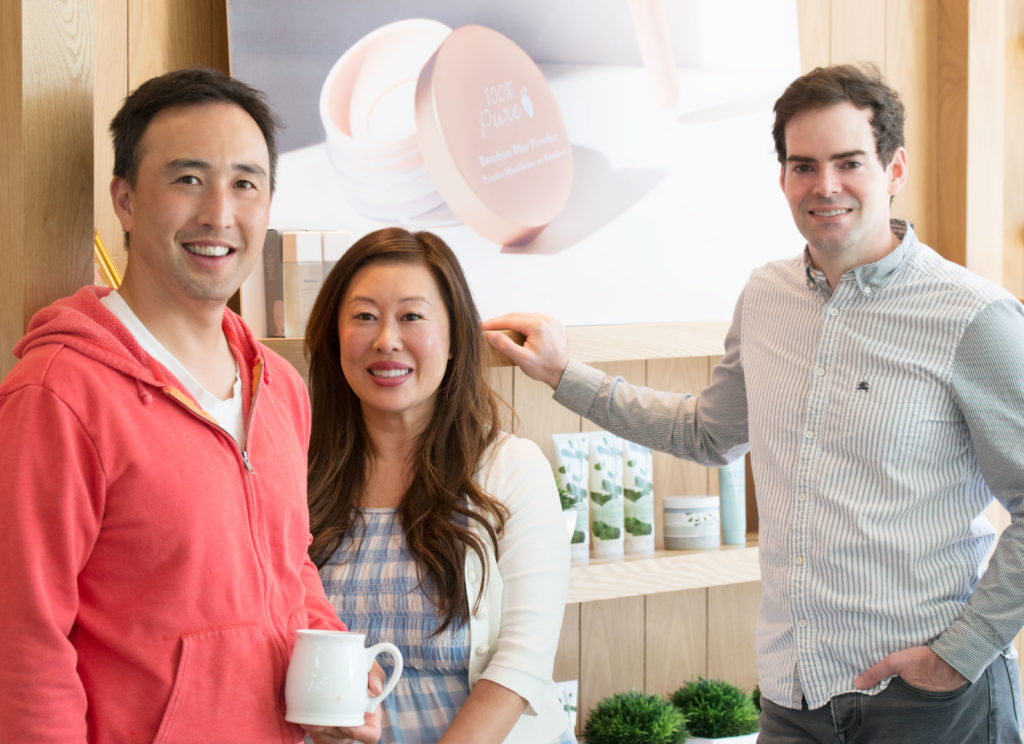
The Helm: You started the company in 2005. Do you remember the recession? How did that impact 100% Pure, as a young company?
Susie Wang: I think of our products as essential as food. I don’t know a single person who wouldn’t still wash their face or condition their hair in a recession. We survived because we made high-quality products at a fair price. Of course, sales didn’t spike as high in the recession, however, I always felt that if you provide a really good product people need day-to-day at a fair value, I don’t think you can fail during the recession. I feel like frivolous products, like glitter eyeshadow, are much higher risk. That said, we did learn a big lesson around that time. We used to sell on QVC, and at another large retailer, which made up 90 percent of our business. During the recession, they both dropped us at the same time. We made the decision to go direct-to-consumer, because then, even if you lose a small percentage of individual customers, it’s not going to be enough to bankrupt your whole company in a downturn. Today, we do 90 percent direct-to-consumer sales. We don’t really have much of a wholesale business.
Our Favorite 100% Pure Products
The Helm: How did you rebound from losing the platform those retailers were providing you?
Susie Wang: We just communicated to our customers via email, giving them education about the ingredients, our processes, how we manufacture, even little things like how we clean our equipment, how we do our testing, how we do all our sourcing—giving full transparency. We had built a small base, and we gave them all our attention, and put our best foot forward. We had great products. We produced them at the best price we could, while giving the best support to our customers with great customer service. It just grew organically.
We had 50 employees in 2008, in retail as well as our own manufacturing and shipment. We did not lay off anyone or cut anything out of our business, but rather just focused all our energy on direct-to-consumer and communicating openly with customers. We started directly listening to what our customers were saying. We had our customer service team scour through all the emails and comments, keeping track of what people were asking for—whether it was a lotion being too thick, or developing a blue mascara.
We also had our brick-and-mortar. We started with a store in Berkeley in 2007, and we have 15 locations today. They would be our sounding board in real life, so we could track the conversation around our products. Our customers are the first to tell us what they want, so they sort of define the trends. Steadily, it just kept growing and growing and growing. I really, truly believe that if you build the best products you can, you can’t help but find success. I know it sounds cliché, but it’s true. Our products only come in a few-ounce sizes. Once you use it, if you had a good experience with it, you are going to buy it again. You’re going to recommend it to friends. I don’t think you can fail if your focus is really good products.
"I don't know a single person who wouldn't still wash their face or condition their hair in a recession."
The Helm: Do you have any advice for new founders who are building their companies in such uncertain times?
Susie Wang: When the last recession hit, we were scared. We didn’t want to lose money. But my dad always told me, “You can get anyone to buy something once. But if you really want to have a sustainable business, where customers come back again and again, people are not dumb. You have to give them the best.”
Rather than worrying about profit, really focus on quality. Times of recession will pass. Just steadily hunker down and develop the very best. Make the best. There are too many commodities out there, so much junk. Don’t make more “stuff”—cheap products that won’t hold up. Even during the Great Depression, there was innovation. That’s when nylon stockings were invented, refrigeration, for example. Focus on being the absolute best in your sector, with the best ingredients and technique. Again, we were scared, too. But we decided to make the very best and have faith that people can taste, and see, and try, and feel, and experience the quality. That is what will sustain.
The Helm: What is one accomplishment you’re particularly proud of?
Susie Wang: We use plant pigments in our color cosmetics, which was extremely hard to perfect. Fruits have sugars, which are sticky; they also have acids, which are not good to wear during the day. We had to take out the pigments without using harsh chemicals. It was crazy hard. When we first started making color cosmetics, the payoff was terrible. We just had fruit powder, which would flake off. It would not stay on the skin. What I am most proud of now is that our fruit-pigmented makeup works as well as any traditional makeup. It took nearly a decade to get to the point where you wouldn’t be able to tell the difference.
The Helm: When did you feel like your business was really thriving?
Susie Wang: Over the last couple of years, my team hasn’t needed me day-to-day. When I started to step away, they were still able to be successful. That’s how I realized this was a self-sustaining business.
We have 200 employees now. We are a nine-digit company in terms of value, or more. In the early years, we were doubling in revenue. At this stage, it’s hard to double, but we are still growing a lot. We are funding everything by the income stream we’ve generated, but my hope is that we can make 100% Pure more accessible, whether that’s eventually taking on an investor or doing something else that would turn us into a household name. I would love for natural cosmetics to be accessible to everyone, and for people to know they could have healthy, safe products that perform just as well, if not better, than traditional products. That’s what my dream would be: Bigger growth.
The Helm: You’re incubating a few companies right now, and going back into the startup space. Where do you go from here?
Susie Wang: 100% Pure is a middle-range brand. It’s not low-end, and it’s not luxury. Every once in a while, there’s been a formulation that I wanted to use that maybe was too expensive for our line. So, I am developing a luxury brand called Flower Ink—flower-dyed makeup and flower-based skincare. These are ingredients I always wanted to use like rose or jasmine essential oil, things that are too expensive for 100% Pure. At the same time, I want to create a price-accessible brand for people who can’t afford 100% Pure. I want everything to be under $20. Clean beauty shouldn’t just be a luxury, it should be a right.
*This interview has been edited for length and clarity

